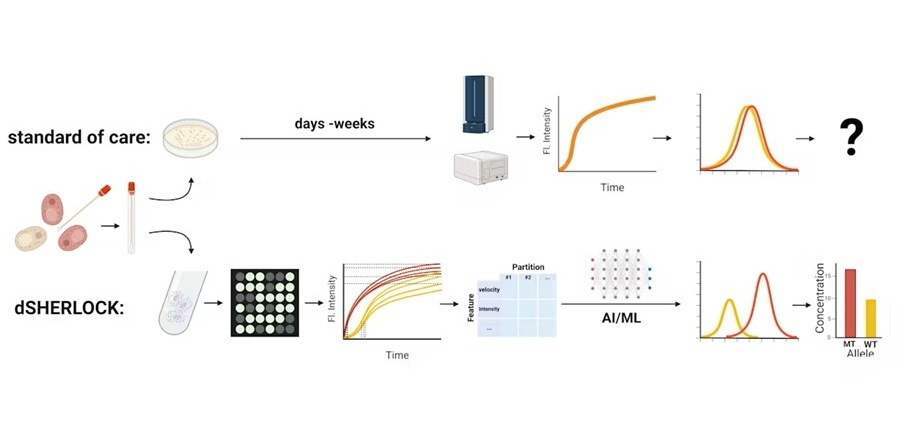Molecular Test Improves Bloodstream Infection Survival
By LabMedica International staff writers
Posted on 01 Nov 2011
A significant decrease in mortality has been seen in intensive care units (ICU) after the introduction of molecular tests for pathogens in the blood. Posted on 01 Nov 2011
The Peptide Nucleic Acid Fluorescence In Situ Hybridization (PNA FISH) technology platform enables fast and highly accurate single cell analysis for the identification of bacterial species in samples from patients with critical infections.
In a retrospective study at the University of Arizona Medical Center (Tucson, AZ, USA) scientists assessed the clinical and financial impact of laboratory testing and reporting of PNA FISH results to guide therapeutic intervention by infectious diseases pharmacists and physicians using established treatment algorithms. The study included patients with positive blood cultures admitted to the medical center between August 2007 and March 2011. A total of 460 patients with results indicative of enterococcal or streptococcal bacteremia, with Gram-positive cocci in pairs and chains (GPCPC) in positive blood cultures, were included in the study.
Of these patients, 262 had PNA FISH performed. A total of 125 patients with yeast-positive blood cultures, indicative of candidemia, were also included, of which 82 had PNA FISH performed. The study revealed that ICU mortality for enterococcal/streptococcal bacteremia was decreased from 34.6% to 18.3%, and candidemia mortality was decreased from 41.7% to 5.9%. The turn-around time for confirmation of results for Enterococcus faecalis, E. faecium, and other streptococci was decreased from more than four days to just over one day, and from over 6.2 to 2.3 days for Candida species. The authors suggested that cost avoidance would be greater than $4.7 million per year when the proprietary PNA FISH technology from AdvanDX (Woburn, MA, USA) was implemented.
Donna M. Wolk, PhD, D(ABMM), associate professor of clinical pathology, said, "Through laboratory collaboration with infectious diseases pharmacists, testing and reporting of PNA FISH results to clinicians resulted in significant reductions in laboratory turn-around times and ICU mortality, and substantial reductions in overall mortality for our patients.” The results of the study were presented at the 51st Interscience Conference on Antimicrobial Agents and Chemotherapy held September 17-20, 2011, Chicago (IL, USA).
Related Links:
University of Arizona Medical Center
AdvanDX










 (3) (1).png)


